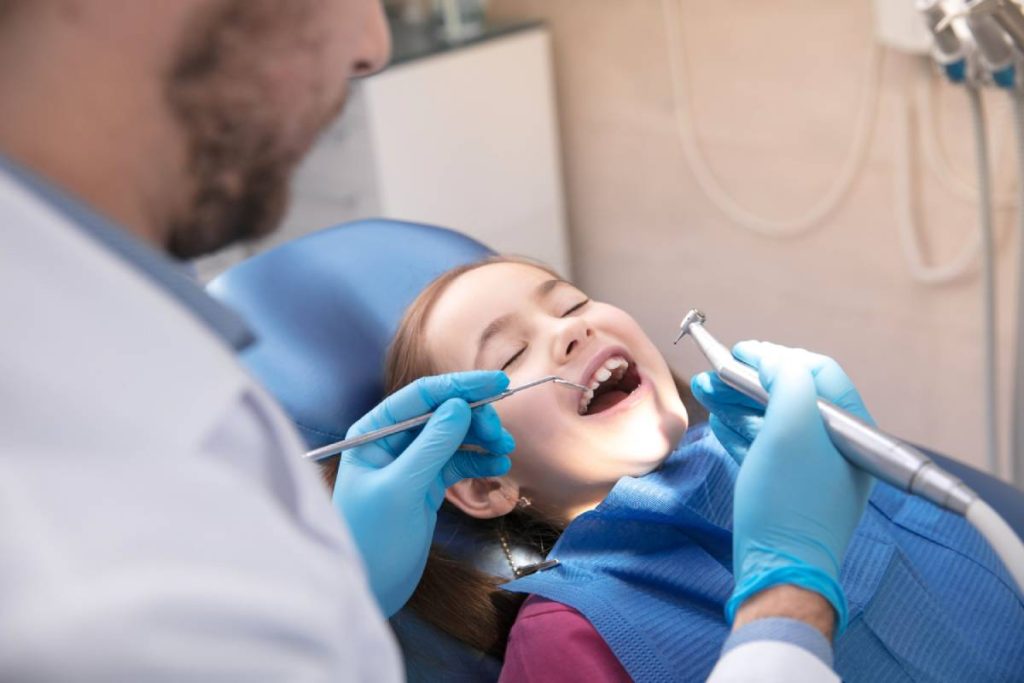Preventive Dental Treatment: The Foundation of Oral Health
Preventive dental treatment is essential for maintaining good oral health and preventing common dental issues. Routine visits to the dentist for check-ups and cleanings are the cornerstone of preventive care. During these visits, your dentist will remove plaque and tartar buildup, helping to prevent cavities and gum disease. Fluoride treatments may also be applied to strengthen your enamel and reduce the risk of tooth decay. Regular preventive dental treatment also includes sealants, which are thin coatings placed on the chewing surfaces of back teeth to prevent cavities. By investing in preventive dental treatment, you can avoid more expensive and invasive procedures in the future, ensuring a healthy smile for years to come.
Restorative Dental Treatment: Repairing Damaged Teeth
Restorative dental treatment is designed to repair damaged or decayed teeth, restoring their function and appearance. Common restorative procedures include fillings, crowns, bridges, and root canals. Fillings are used to treat cavities by removing decayed material and filling the hole with a durable substance, such as amalgam or composite resin. For more extensive damage, a crown may be placed over a weakened tooth to restore its shape and strength. Bridges are used to replace missing teeth by anchoring artificial teeth to adjacent healthy teeth. In cases of severe decay or infection, a root canal may be necessary to save the tooth. Restorative dental treatment helps maintain the function of your teeth and can prevent the need for extractions or other more complicated procedures.
Cosmetic Dental Treatment: Enhancing the Appearance of Your Smile
Cosmetic dental treatment focuses on improving the aesthetic appearance of your teeth and smile. Whether you have discolored, chipped, or misaligned teeth, cosmetic dental treatment can help you achieve a brighter, more confident smile. Teeth whitening is one of the most popular cosmetic treatments, effectively removing stains caused by coffee, tea, or tobacco. If you have chips, cracks, or gaps in your teeth, veneers or bonding can be used to create a smooth and uniform appearance. For those with alignment issues, Invisalign or traditional braces can straighten teeth and correct bite problems. Cosmetic dental treatment can greatly enhance your self-esteem and contribute to your overall well-being by improving the appearance of your smile.
Orthodontic Dental Treatment: Straightening Your Teeth
Orthodontic dental treatment is used to correct misaligned teeth and jaw issues. Braces are the most common form of orthodontic dental treatment, and they work by gradually shifting teeth into their correct position over time. Braces consist of brackets, wires, and bands that apply pressure to the teeth, moving them into alignment. For those looking for a more discreet option, clear aligners like Invisalign are an excellent alternative to traditional braces. These removable aligners gradually straighten teeth without the need for metal brackets. Orthodontic dental treatment can improve both the appearance of your smile and your oral health by correcting bite issues that may lead to problems with chewing, speaking, or even jaw pain.
Gum Disease Treatment: Protecting Your Gums
Gum disease treatment is an essential component of dental treatment aimed at protecting your gums and preventing tooth loss. Gingivitis, the earliest stage of gum disease, can be reversed with regular cleanings and proper oral hygiene. However, if left untreated, gum disease can progress to periodontitis, which requires more advanced dental treatment, such as scaling and root planing. This deep cleaning procedure removes plaque and tartar buildup beneath the gumline and smooths the tooth roots to prevent further bacterial growth. In severe cases, surgical procedures may be necessary to treat gum disease. By addressing gum disease early through preventive dental treatment and timely intervention, you can prevent tooth loss and maintain the health of your gums.
Emergency Dental Treatment: Addressing Sudden Issues
Emergency dental treatment is needed when unexpected dental problems arise, such as a broken tooth, severe toothache, or dental trauma. A toothache can signal an underlying problem, such as a cavity or infection, that requires immediate attention. In cases of trauma, such as a knocked-out or cracked tooth, prompt dental treatment is necessary to save the tooth or prevent further damage. Your dentist may use a variety of techniques, including fillings, crowns, or even root canals, depending on the severity of the issue. Emergency dental treatment ensures that you receive timely care to relieve pain and prevent further complications. If you experience any dental emergencies, it’s important to contact your dentist as soon as possible to minimize the damage and preserve your oral health.
Choosing the Right Dental Treatment for Your Needs
Choosing the right dental treatment depends on your individual oral health needs, budget, and lifestyle. During your consultation, your dentist will evaluate your oral health, listen to your concerns, and recommend the best treatment options for you. If you require preventive care, the focus will be on regular check-ups and cleanings to maintain healthy teeth and gums. For restorative needs, your dentist will help you decide between treatments like fillings, crowns, or root canals. If you’re interested in cosmetic enhancements, your dentist may suggest options like teeth whitening or veneers to improve the appearance of your smile. It’s important to have a clear understanding of your options and choose the dental treatment that best fits your needs, ensuring long-term oral health and a confident smile.
Conclusion
In conclusion, there are various types of dental treatment available to meet the diverse needs of patients. Whether you require preventive care, restorative work, cosmetic enhancements, or orthodontic treatment, it’s essential to choose the right approach for maintaining optimal oral health. Regular visits to your dentist, along with timely intervention when necessary, can help prevent more serious dental issues and ensure that your smile remains healthy and bright. By understanding the different types of dental treatment and working with your dentist to create a personalized plan, you can achieve lasting oral health and an attractive smile for years to come.
Frequently Asked Questions
- What are the most common types of dental treatment?
- The most common types of dental treatment include preventive care (cleanings and check-ups), restorative procedures (fillings, crowns), and cosmetic treatments (whitening, veneers).
- How often should I visit the dentist for treatment?
- It’s recommended to visit the dentist at least twice a year for routine check-ups and cleanings to maintain good oral health.
- Does dental insurance cover all types of treatment?
- Dental insurance typically covers preventive care and some restorative treatments. Coverage for cosmetic procedures may vary depending on the plan.
- Is cosmetic dental treatment expensive?
- Cosmetic dental treatment can be costly, but many dental offices offer financing options or payment plans to make it more affordable.
- How long does it take to recover from dental treatment?
- Recovery time depends on the type of dental treatment performed. Routine cleanings have no recovery time, while more invasive procedures may require a few days to a week for healing.
- Can orthodontic treatment fix alignment issues?
- Yes, orthodontic dental treatment, such as braces or clear aligners, can effectively correct alignment issues and improve your bite.
- What should I do if I have a dental emergency?
- If you experience a dental emergency, such as a tooth injury or severe pain, contact your dentist immediately for guidance and treatment.
- Are there any risks with dental treatment?
- While most dental treatment is safe, risks can include infection, discomfort, or complications from anesthesia. It’s important to follow post-treatment instructions carefully.
- Can I get dental treatment without insurance?
- Yes, many dental offices offer affordable options for those without insurance, including payment plans or discounts for cash payments.
- What is the best dental treatment for sensitive teeth?
- If you have sensitive teeth, your dentist may recommend special toothpaste, fluoride treatments, or desensitizing procedures to alleviate discomfort.












